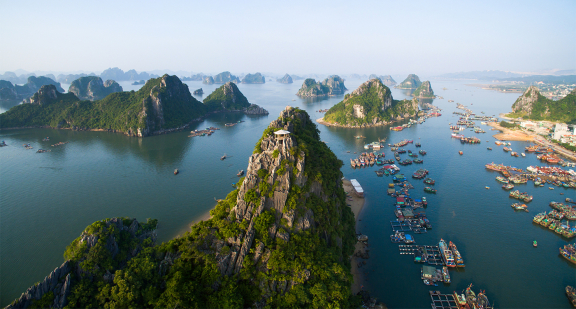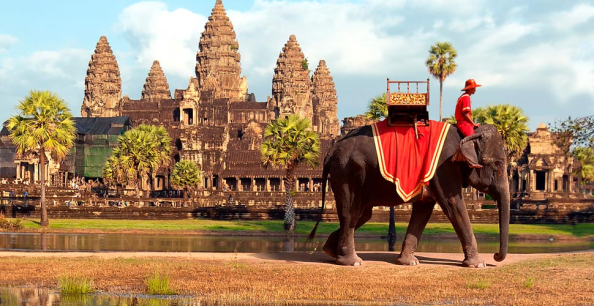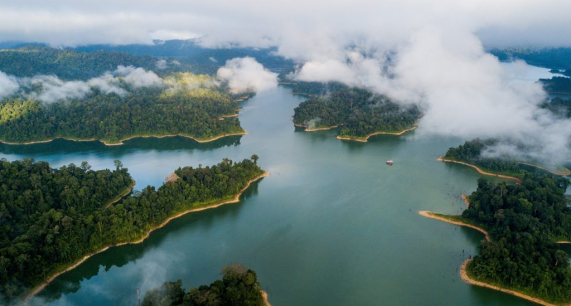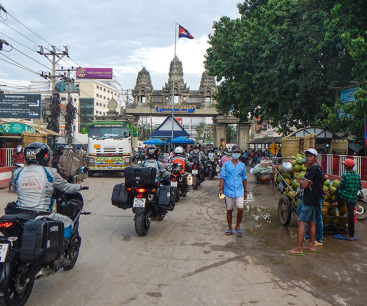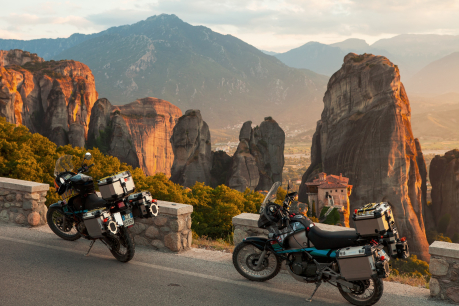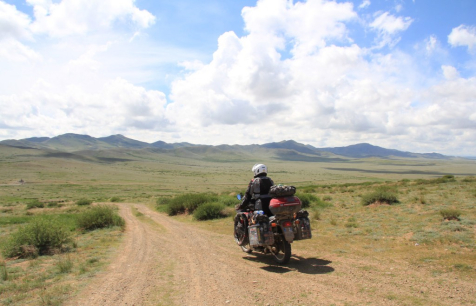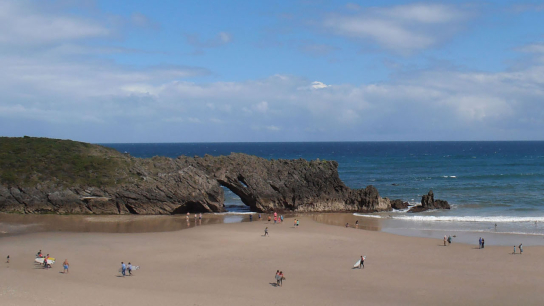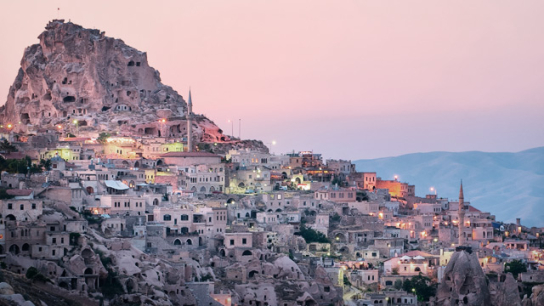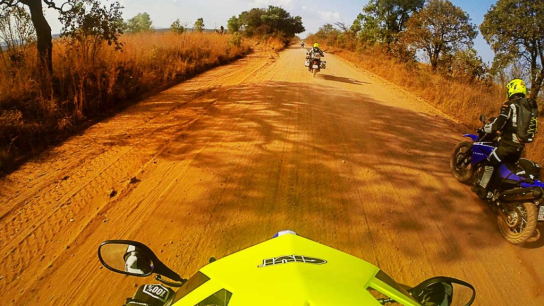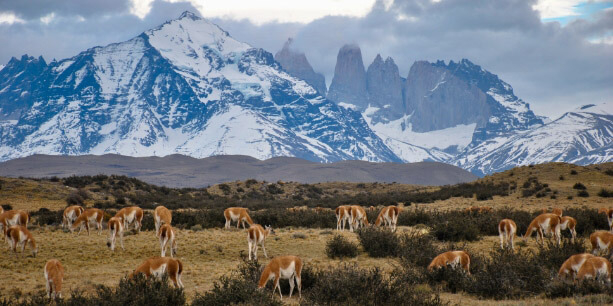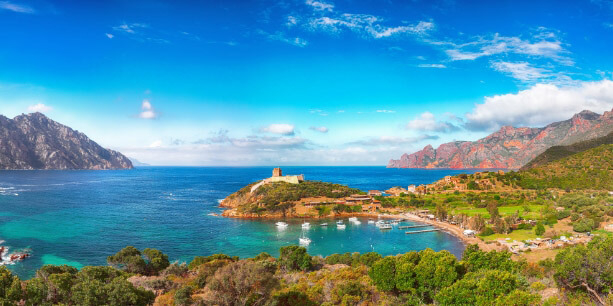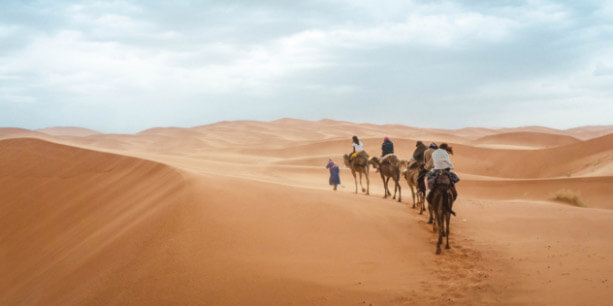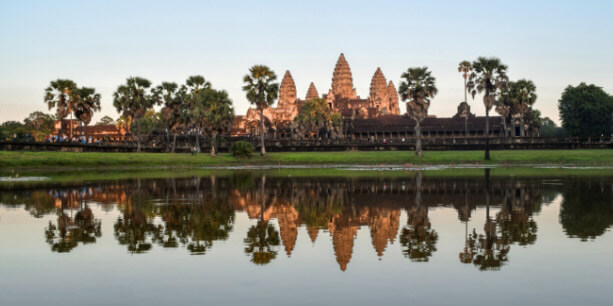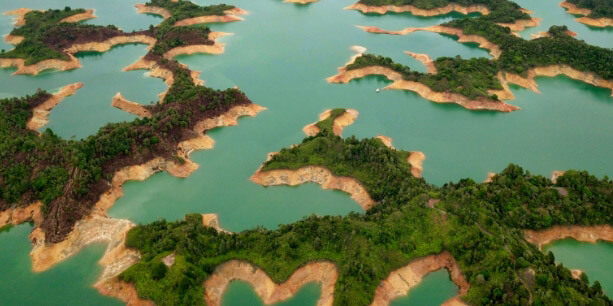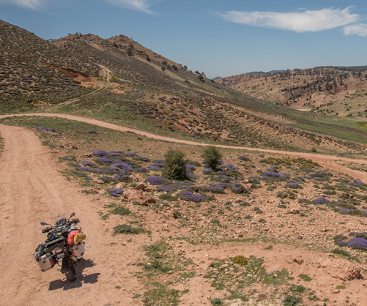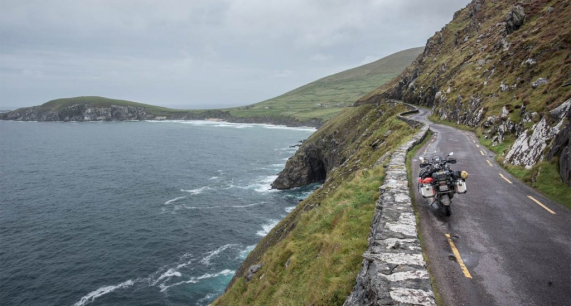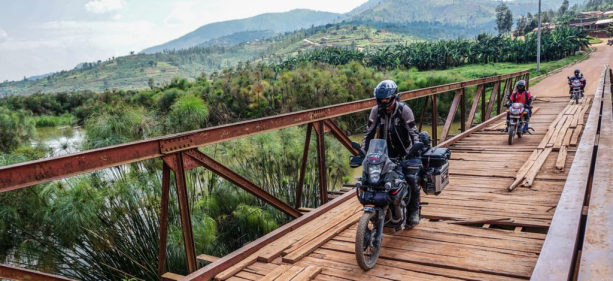Vietnam - practical info
Travelling alone or with a companion
Vietnam continually trends as a holiday destination within South Eastern Asia and recently, it has also become a coveted destination for motorcycle adventurers.
Some 50 years have flown by since the reunification of Vietnam, but memories of the war are still very vivid in the minds of many westerners and fortunately, Vietnamese people no longer refer to the conflict.
The Vietnamese are a young people (with the average age of the population being around 32 years of age), concerned that Vietnam is transforming and being modernised. It is a nation that is part of the World Trade Organisation and with rapidly growing export trade that attracts investment from multinational organisations located throughout the world.
Its major towns are extremely chaotic (particularly Ho Chi Minh City and Hanoi) but once leaving the cities behind, visitors begin to encounter ancient ruins and exotic landscapes.
Away from the metropolitan areas, the landscape is mostly mountainous with hills, rice fields and rivers, the most famous being the Mekong, whose waters buzz with the continual stream of boats traversing the multiple canals. Then there is the tropical forest and the coastline. The Government considers tourism a very important resource and this view is shared by the Vietnamese people who provide visitors with hospitality far in excess of the average and with the addition of a warm, welcoming smile.
In other words, travelling through Vietnam either alone, as a couple or in a group, is totally achievable and whilst there are some travel restrictions, generally, visitors can move freely around the country.
Lovers of culture and architecture will discover locations that are definitely worth a visit and amongst those locations declared UNESCO World Heritage sites are Ha Long bay, Ho dynasty village, the imperial town of Hanoi Thang Long, the towns of Hue and Hoi An, the site of My Son and Phong Nha-Ke Bang National Park to name just a few.
Personal and motorcycle documents
The essential documents to face a motorcycle trip in Vietnam are:
Passport: To be granted entry into Vietnam, a passport must be valid for at least six months following the date of arrival, but this parameter may vary according to the agreement that may exist between Vietnam and individual foreign countries.
Visa: on 15 March 2022, the Vietnamese government lifted all restrictions on entering the country for all categories of travellers, including tourists. This means that the visa waiver for short stays of up to 15 days once again applies for the citizens of certain countries, including Italy. It is also possible to obtain a tourist visa of up to 30 days ("e-visa") online, through the following platform: https://immigration.gov.vn. For longer stays, a visa must be requested from a Vietnamese Embassy or Consulate.
Currency and customs formalities: upon arriving in Vietnam, you may need to fill out a customs declaration on a special form, which will be provided before your arrival at the airport or border posts. Once this document has been seen and stamped, you must keep it until you are leaving the country, at which point you must return it to the customs authorities. Upon arrival, it is necessary to make a declaration if you are in possession of cash in excess of US$7,000, precious metals, jewels, cameras or electronic equipment. Luggage may be inspected without warning and without authorisation. The customs authorities have the power to confiscate documents, audio and video tapes, and CDs, DVDs and books deemed to be religious, political or pornographic in nature. In the latter case, a heavy fine may also be applied.
Vietnamese law places restrictions on the export of antiquities, and any items you have purchased may be confiscated upon your departure.
Driving licence: only those who have a visa for at least a 3-month stay and an international driving permit (after the Vienna Convention model), along with a licence from their home country, are permitted to ride motorcycles or drive other vehicles.
Foreign citizens with a tourist visa are not permitted to ride motorcycles or drive other vehicles of any kind. Those who do not hold an international driving permit but do have a visa for at least a 3-month stay may convert a licence from their home country into a Vietnamese licence at the Vietnamese vehicle registration offices, a procedure which takes about five working days and requires payment.
Entering the country with a personal motor vehicle or one rented in a neighbouring country: the Laws in this respect are very specific. The authorisation procedure to allow the entry of foreign vehicles must be started prior to arriving into the country and needs to be carried out with the help of a local authorised international tourist agency. Generally, at least two months are required to allow for all the necessary authorisations to be obtained. The permit, which can be very expensive, is issued upon payment of a fee and the amount of the fee is dependent upon the type of request being made.
It is possible to drive a foreign vehicle in Vietnam for a maximum of 30 days but in the case of “force majeure”, this period can be extended by a further 10 days. It is essential to keep the vehicle registration document to hand. It is also advisable to contact the Embassy of origin for detailed information relating to entering Vietnam with a vehicle bought or rented in any neighbouring country eg China, Laos, Thailand and Cambodia.
In Vietnam, it is compulsory to insure scooters and motorcycles above 50cc. It is therefore necessary to purchase an RC Insurance policy from Border officials. Further information can be found on the website www.vehicle-documents.it/start/Asia/Start_vietnam/vietnamstart.htm
Connections to the rest of the world: airplane connections are increasing in number, though they are often not direct and involve at least one stop.
Finally, please note that local airline companies (Vietnam Airlines, Pacific Airlines, VietJet and Bamboo Airways) prohibit Apple MacBook Pro 15'' computers sold between September 2015 and February 2017 and Samsung Galaxy Note 7 notebooks from being brought on their flights, whether as carry-on or checked luggage.
The ban applies to all destinations, both national and international, and whether entering or exiting the country.
Mobility
Vietnam drives on the right.
Alcohol levels: For motorcyclists, the limit is 0.05% and for all other drivers the limit is 0%.
Helmet Use: The wearing of helmets is compulsory for both motorcyclists and their passengers. Road accidents are the most common cause of death in Vietnam and are mainly due to the dreadful condition of the road networks, the high density of vehicular traffic, the lack of knowledge and respect of basic driving rules and the low level of vehicle maintenance.
Driving at night is extremely dangerous due to the lack of street lighting, local drivers habitually using high beams even when in close proximity to other vehicles and the failure to respect the highway code, especially at crossroads even those regulated by traffic lights
Avoid unpaved roads in the central provinces, especially in Quang Tri. These areas are still a hub for unexploded bombs that can cause serious harm. Some areas are not accessible to foreign visitors and are indicated with signs reading “Khu vuc cam” or “Dia diem cam”.
Safety
Vietnam is one of the safest destinations in South East Asia, even if the risk of terrorist attacks cannot be completely excluded considering the current international situation. The only area that is currently not recommended for travel is that of the contested archipelagos and particularly the islands of Paracel and Spratlys.
Just like anywhere else in the world, criminal activity is widespread in the major tourist areas, but it is important for visitors to be aware of pickpockets in Ho Chi Minh City, and Hanoi and to take extra care of cameras and other portable electronic devices when using public transport.
It is advisable to avoid stopping in remote areas close to train and bus stations.
If a passport is lost or stolen: it is necessary to declare the loss or theft at the main Police Station in the location where the document was originally lost or stolen. This report will enable travellers to obtain a new travel document from their Embassy or from the General Consulate in Ho Chi Minh City; however, travellers will not be allowed to leave the country until they are in possession of a new entry visa. Depending on the individual situation, either a new passport or an emergency travel document (ETD) could be granted, but the ETD would only allow the visitor to return to Italy and is not valid to allow a journey to be continued through other countries in the region. Whilst in Vietnam, it is advisable to keep passports in a safe place but to travel around with just a photocopy of the document.
In respect of unmarried couples, a foreign visitor is not permitted to share a hotel room with a Vietnamese citizen and vice versa.
It is important to note that Police Officers do not normally speak any foreign languages so it is difficult to deal with local Police without the help of an interpreter. Prior to reporting a crime, it is advisable to speak to the Italian Consulate in Hanoi or the General Consulate in Ho Chi Minh City.
Useful information
Country Code: VN
Capital City: HANOI
Population: approximately 97 million
Surface: 331,210 sq km
Time zone: 6 hours ahead of Italy (5 hours during the summer).
Language: Vietnamese. English is spoken in hotel facilities and tourist areas.
Religion: primarily Buddhist, followed by Evangelical Christianity. Other religions are present in small enclaves.
Currency: The Dong, which cannot be exchanged outside Vietnam. US Dollars are accepted everywhere and shopping centres, hotels and restaurants also accept credit cards (with a commission of up to 5%). The exchange rate is 25,528.52 Dong = 1 Euro. In major towns it is possible to withdraw cash from an ATM machine using a credit card. Try to spend all Dong currency prior to leaving the country as it is not always easy to convert the Dong back into Euros or US Dollars.
Power grid: 220V AC (50Hz). Sockets used are size A, C and G (with “G” being mainly available in hotels).
Mobile Networks: 0084-24 for Hanoi from abroad; 0084-28 for Ho Chi Minh City. GSM coverage for mobile phones is 900 MHz and is satisfactory in main towns as well as on the coast. International roaming is available with the main international operators, but at a high cost. If staying in Vietnam for more than a month, it might be advisable to buy a rechargeable phone card as this would reduce the cost of international calls.
Internet: (including Wi-Fi) is available throughout the entire country. Internet Cafes are available in most locations, providing computer access at affordable prices.
Emergencies: 115
Police services: 113
Ambulance: 115
Road Safety Phone line: 115
Official Tourism Agency: https://www.vietnamtourism.gov.vn – email: contact@vietnamtourism.gov.vn
Useful numbers for italian motorcycle tourists
Italian Consulate Branch: website http://www.mofa.gov.vn/vnemb.italia/ - https://www.mofa.gov.vn/vi/
Bravetta Street, 156-158 – 00164 Roma – Tel.: 0666160726 – 0666166157 – Fax: 0666157520 E-mail.: vietnam@vnembassy.it
Socialist Republic of Vietnam Consulate: 24 Federico Campana Street – 10125 Torino
Phone: +39 011/655.166 – E- mail: segreteria.consolatovietnam@gmail.com
Italian Embassy in Vietnam: 9, Le Phung Hieu Street– Hanoi. – Tel. (+84-24) 38256256 – 38256246. Emergency Line (for night calls, weekends and festivities): from Italy 0084 903430950. From Vietnam 0903430950. E-mail: ambasciata.hanoi@esteri.it; consolare.hanoi@esteri.it; website: https://ambhanoi.esteri.it/ambasciata_hanoi/it/
Italian General Consulate in Ho Chi Minh City: President Place Building, 10th floor 93, Nguyen Du Street
District 1, 70000 HCMC – Tel. (+84-28) 3827 5445 – 3827 5446. Emergency Line (for night calls, weekends and festivities) From Italy 0084 122 8010257; from Vietnam 0122 8010257.
E-mail: hochiminh.consolato@esteri.it Sito web: https://conshochiminh.esteri.it/consolato_hochiminh/it/
Healthcare conditions
The level of healthcare provided in Vietnamese public hospitals is far below European standards. However, there are public hospitals in Hanoi, Danang and Ho Chi Minh City that have the capability to offer an average level of assistance, at least in certain specific sectors (ie midwifery, general medicine and lab tests). If A&E assistance is required, it is important to visit the local hospital but treatment is chargeable and fees, which can be quite high, must be paid in advance of treatment. In the event of illness or incidents which require a more complex or delicate procedure, it would be necessary to be transferred to either Bangkok, Singapore or Hong Kong. It is important to be vigilant when purchasing medicines locally, choose a pharmacy located in a major town as many fake pharmaceutical products are in circulation throughout the country.
Water is not drinkable and in some parts of the country the water can be found to be contaminated with viruses, bacteria and even chemicals. It is important to drink only bottled water and do not have ice in cold drinks, as the water used to make the ice cubes is of unknown origin. Peel all fruit prior to eating and it is advisable not to eat any pre-cooked “street food”.
Illnesses: Cholera and bowel infections can occur during the rainy season (May to September) and as a result, it is advisable to strictly observe food hygiene measures even while in metropolitan areas and the capital city.
Pay particular attention to the risk of measles and rubella (cases of which were rising significantly until a few years ago). Make sure you have immunity before travelling (either because you have already had the virus, or by getting the Measles-Mumps-Rubella (MMR) vaccine). Whilst in Vietnam, there is a high risk of contracting typhus, hepatitis A and hepatitis B (extremely widespread), as well as tetanus, Japanese encephalitis and diphtheritis. The last two experienced an outbreak during 2016 in the north-central provinces). If planning an extended stay in the country, it is advisable to obtain a jab to provide immunity against Japanese Encephalitis.
In recent years, the number of Dengue Fever cases detected by the World Health Organisation has significantly increased. The WHO has placed Vietnam on the list of South-East Asian countries where the endemic transmission of the Zika virus may occur.On 21 October 2022, a case of bird flu was recorded in the northern province of Phu Tho.
Finally, cases of “monkeypox” have been reported in some parts of the country. As a result, the Vietnamese government has introduced a number of containment measures as of 22 August 2022: upon arrival in Vietnam, visitors will have their temperature checked to detect any symptoms of the virus.
If symptoms are suspected, passengers will be subjected to further epidemiological investigation at special medical facilities.
Insurance: Prior to travelling to Vietnam, it is advisable to take out an insurance policy to cover the country’s high healthcare costs and the costs involved in the potential repatriation / transfer of the policyholder to a different country for medical treatment.
Pollution: Even in the most urbanised areas, pollution rates have reached a significant level, with a serious potential impact on health. Water and air pollution have an inevitable impact on the safety, hygiene and integrity of food.
The COVID-19 situation: As of 15 March 2022, all restrictions on entering the country for all categories of travellers, including tourists, have been lifted. Moreover, no PCR or antigen test is required to enter the country.
The requirement to isolate upon entering the country has been lifted. However, travellers are obliged to monitor their own health for the 10 days following their arrival, and to immediately inform the health authorities if any symptoms arise.
We recommend downloading the “PC Covid” App for your mobile phone.
It is also necessary to have international healthcare insurance which will cover cases of Covid-19 infection.
Motorcycle equipment
Vietnam is one of the countries in South East Asia that has the highest rate of road traffic accidents. The vast majority of incidents are due to the chaotic levels of traffic and a distinct lack of regulation in metropolitan areas. For this reason, it is advisable to always wear technical clothing, despite the hot and humid weather conditions.
If approaching the Borders by land and on a private motorcycle (although many choose to have their vehicle shipped with an international courier) you obviously already have the experience and equipment necessary to travel in any part of the world.
Those who decide to arrive in Vietnam via a comfortable flight and choose to hire a motorcycle locally, must ensure they have packed appropriate technical clothing, a set of universal soft side bags, a comfortable backpack (waterproof if travelling in the rainy season), a First Aid kit, puncture repair kit, USB cables, a universal smartphone holder and a lock with a steel cable to secure a helmet and bags to the motorcycle during short stops.
Fuel
The average price (as of early May 2023) of a litre of petrol is 22,995 Dong (US$0.98).
When to travel
Vietnam spreads across a latitude of approximately 1800km, therefore the weather can vary greatly between the north and south and this is also true of the main towns of Hanoi in the north and Ho Chi Minh City in the south. Whilst the south of the country is cooler, humidity levels are the same right across the country. Weather conditions can vary enormously according to the season. Hurricanes, more likely to be tropical storms, occur between June and the beginning of November and this is known as the rainy season. As this time of year is particularly affected by changes in the weather, motorcycle trips during the rainy season should be avoided.
NORTH: characterised by two seasons; Winter from November to April (when temperatures range between 16 and 23C degrees) and Summer from May to October (when temperatures range between 25 and 35C degrees). With a high level of humidity, heavy rain and violent tropical storms.
CENTRE: A tropical climate, with two main seasons: the moist and the dry. The latter, “dry” season takes place from November to April. If travelling to the centre of the country, it is advisable to travel by motorcycle between the months of February and April.
SOUTH: Sub-equatorial climate with a regular pattern of two seasons: a “moist” one from May to November, with daily storms and a “dry” one from December to April.
In general, the best time to travel across Vietnam with a motorcycle is between the months of November and April, when rains are lighter, humidity is not excessive and temperatures are comfortable across the whole country.
To learn more about Vietnamese weather and local forecasts, click on the following weblink:
www.nchmf.gov.vn/web/en-US/43/Default.aspx
Motorcycle rentals and tour operators
It is important to note that if hiring a motorcycle locally, you would be requested to leave your passport with the rental agency. The internet is full of tour operators and rental companies located in Vietnam and below you will find details of a few we have selected.
ADV MOTORCYCLE TOURS & DIRTBIKE TRAVEL
Calling themselves “the pioneers of enduro tours in Vietnam”, they offer tour packages ranging from 1 to 11+ days to suit any budget and level of off-road experience.
A real adventure indeed! On the website, the tours are presented with images and stories. However if travelling with friends, the company can tailor-make a tour especially for your group. The motorcycles available are reliable, modern and well known: Yamaha WR250R, Honda CRF250L, Honda XR250L, Kawasaki Super Sherpa 250, Honda XR150L and Yamaha XTZ125.
No. 58, 12 Lane, via Luong Khanh Thien, Hanoi, Vietnam.
Phone: (+84) - 399 805 286 – Direct line: (+84) - 904 446 608 – Whatsapp: 0399 805 286 - email address: advmotorcycletours@gmail.com – dirtbiketravel@gmail.com Website: http://www.dirtbiketravel.com
RENTBIKEVN
Small cylinder capacity motorcycle rentals, with automatic, semi-automatic and manual vehicles. Compact enduros are also available in the parking lot including 125cc and 150cc.
The company, with offices located in Ha Noi, also offers guided expedition tours. The website features a useful FAQ section.
5, Alley 12, Dang Thai Mai (Tay Ho), Hanoi Phone +84 904 392 423 – email: contact@rentabikevn.com – Website: www.rentabikevn.com
STYLEMOTORBIKES
Available in the major towns. They both sell and rent scooters, as well as small cylinder capacity motorcycles (Honda CB150, Honda XR150…)
Hanoi: 21 Hang Chinh, Hoan Kiem, Hanoi – Phone: (+84)37 552 6367
Ho Chi Minh City: 292 Vo Van Kiet, Co Giang, Quan 1, Ho Chi Minh – Phone: (+84)76 610 1086
Hoi An e Hue: 171 Cua Dai, Hoi An/ 17 Nguyen Cong Tru, Hue - Phone: (+84)76 259 9141
Ha Giang: 20 Hoang Huu Chuyen, Ha Giang - Phone: (+84)91 274 9113
Email: stylemotorbikes@gmail.com – website: www.stylemotorbikes.com
MARCO POLO TEAM
An association based in Padua and founded in 2005 by a team of moto-raid experts, they lead motorcycle riders on group trips all over the world. Tours in Vietnam and Cambodia are generally offered on an all-inclusive basis in their main annual programme of tours. For more information contact them on 340 4988303 or email them at info@marcopoloteam.it. Website: www.marcopoloteam.it)
Contents updated as of May 2023

